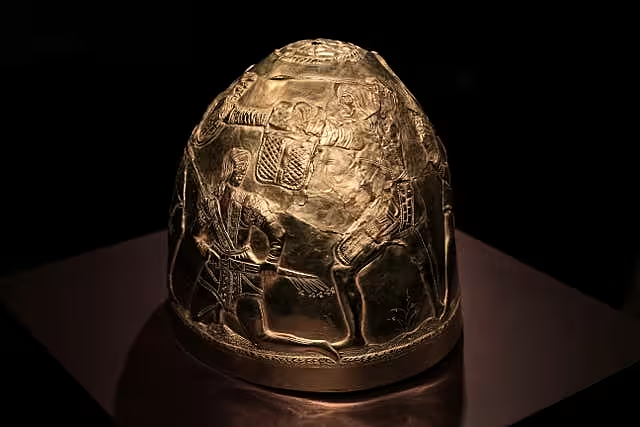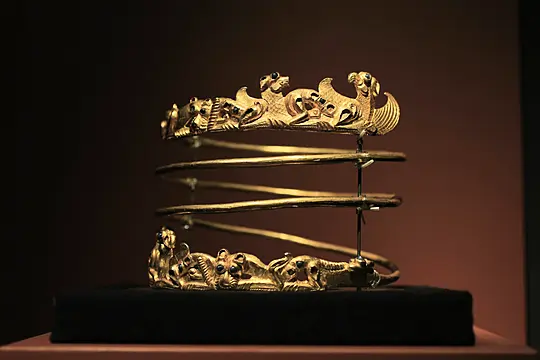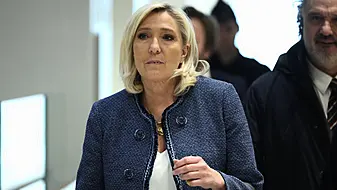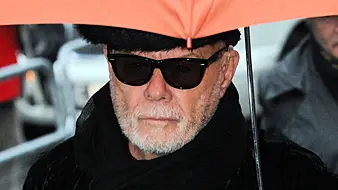Historical treasures that were stored for years at an Amsterdam museum during an ownership dispute sparked by Russia’s annexation of Crimea have been safely transported to Ukraine, the museum announced.
Their transport ends a nearly decade-long legal tug-of-war over the artefacts, including a solid gold Scythian helmet from the 4th century BC and a golden neck ornament from the second century AD that weighs more than a kilogram (2lbs).
“This was a special case, in which cultural heritage became a victim of geopolitical developments,” Els van der Plas, director of the Allard Pierson historical museum, said in a statement.

The museum displayed the 300 artefacts from four museums in Crimea in an exhibition that opened a month before the Russian annexation in 2014.
Both the Ukrainian government in Kyiv and the four Crimean museums that had loaned bronze swords, golden helmets, precious gems and other artefacts to the Allard Pierson demanded the objects back.
After a series of lower court decisions, the Dutch Supreme Court ruled in June that the museum must return the treasures to Ukraine and not to the four museums from which they originally came for an exhibition titled Crimea – Gold And Secrets Of The Black Sea.
Judges cited the lack of national recognition for the Russia-annexed Autonomous Republic of Crimea.
“Although the museum pieces originate from Crimea and can therefore also be regarded as Crimean heritage, they are part of the cultural heritage of Ukraine,” the Supreme Court ruled.

“We are pleased that clarity has emerged and that they have now been returned,” Ms Van der Plas said.
Kremlin spokesman Dmitry Peskov reaffirmed Russia’s view that the trove should be returned to Crimea.
“It belongs to Crimea and it should be there,” Mr Peskov told reporters.







